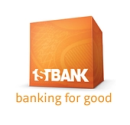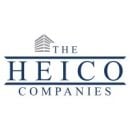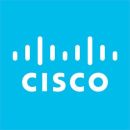Social responsibility is the act of being accountable to the public and taking steps to benefit people, the planet and society as a whole. In this sense, socially responsible companies are concerned about more than the bottom line — they also care about the environment, ethical business practices and human rights issues.
Many companies have emphasized corporate social responsibility, or CSR, in recent years, not solely out of benevolence, but also because it attracts customers, investors and employees. A 2017 study found that 78 percent of consumers want companies to take a stand on social issues, and 87 percent will buy products from a company that advocates for an issue they care about.
Socially Responsible Companies
- Allbirds
- Ben & Jerry’s
- Bombas
- HP
- Intel
- Microsoft
- Patagonia
- Toms
- Warby Parker
Why Is Social Responsibility Important?
For companies, practicing social responsibility is important because of their influence and ability to allocate resources on a large scale. Socially responsible companies can make a positive impact on society in many ways, such as by donating to nonprofits, reducing their carbon emissions, using eco-friendly materials, promoting diversity or speaking up on human rights issues. Plus, socially responsible companies can see a boost in their brand image, employee morale and customer retention, leading to long-term profits as a result.
Below, we take a closer look at some of the more notable socially responsible companies and their visions to make the world a better place.
Socially Responsible Companies to Know
How it’s a socially responsible company: Intel derives 93 percent of its electricity from renewable energy sources, and it aims to reach 100 percent by 2030. In its manufacturing process, the company expects to reach net-zero greenhouse gas emissions by 2040, as well as achieve net-positive water and zero waste to landfills by 2030. Additionally, Intel spent $2.2 billion with diverse suppliers in 2022, reaching its goal to spend $2 billion annually with diverse suppliers by 2030.
How it’s a socially responsible company: PatientPoint offers products and services that allow medical providers to better engage their patients throughout the care journey. The company created the PatientPoint Foundation “to bring a different approach to health equity issues and help mitigate health disparities.” The charitable organization seeks to build community partnerships with groups that share its mission, as well as to deploy technology and other resources with the goal of promoting healthy behaviors and improving health literacy.
How it’s a socially responsible company: Block provides fintech products and solutions to consumers and businesses through its family of brands: Square, Cash App, Spiral, Tidal and TBD. The company produces an annual corporate social responsibility report that features details about its economic empowerment and climate action initiatives. The 2023 edition highlights efforts to invest money and other resources in new music artists through the TIDAL RISING program, the financing and education made available to Black and Latino entrepreneurs through the Square FORWARD business accelerator program and ongoing investments in minority and under-resourced communities on a global scale.
How it’s a socially responsible company: Bonterra’s social impact software is built to help bring as much money as possible to the nonprofits and organizations that need it to do good in the world. Its products for corporate social responsibility cover grants management, giving and matching programs and volunteerism to support global giving engagement initiatives and streamlined donation procedures. Bonterra’s overall purpose centers around producing technology solutions and proactively working “for the greatest good.”
How it’s a socially responsible company: Skillsoft offers a vast portfolio of software tools, courses, video content and other resources to support employee learning and development across a variety of industries. To illustrate its dedication to sustainable and responsible business practices, Skillsoft’s yearly impact report shows the company is working to limit its greenhouse gas emissions, for example, and foster partnerships for in-kind license donations to address skills gaps. Skillsoft also offers sustainability-focused training courses on topics like waste reduction and clean energy in addition to being a signatory for the UN Global Compact on Climate Change.
How it’s a socially responsible company: Novo Nordisk develops new therapeutics and conducts clinical trials to innovate treatment of medical conditions such as Alzheimer’s disease and haemophilia. It’s committed to a sustainable and socially responsible approach to doing business, which has resulted in initiatives across its operations. For example, the company sources renewable power for all of its production sites and is working to further cut down on carbon emissions by setting a goal of making sure its direct suppliers also operate on renewable energy. Novo Nordisk is also expanding the reach of Changing Diabetes in Children, a program that brings medicine and medical care to young people with type 1 diabetes who are living in low- and middle-income countries.
How it’s a socially responsible company: Google has been carbon neutral since 2007 and is now working to transition to carbon-free energy sources by 2030. Additionally, since 2014, Google has invested more than $90 million to achieve equity in computer science and higher education, more than $400 million to create economic opportunities for communities of color as well as more than $45 million and 50,000 pro bono hours to support racial justice organizations.
How it’s a socially responsible company: Shoe brand Toms started in 2006 with a promise to donate one pair of shoes for every pair sold. After reaching 100 million shoe donations in 2020, Toms discontinued its shoe donation program but started donating one-third of its profits to grassroots organizations. In 2022, Toms donated $1.7 million in funds to support causes for mental health, access to opportunities and ending gun violence. A certified B Corp, Toms also aims to use 100 percent sustainable cotton in its products by 2025.
How it’s a socially responsible company: SRAM is a global company that builds components for both road and mountain bikes. It developed its “Our Responsibilities” platform to display its advocacy for communities and the planet. The company has a Cycling Fund that invests one million dollars every year to organizations that are dedicated to the improvement of cycling infrastructure in North America and Europe. It also supports World Bicycle Relief, a nonprofit organization that provides bikes to those living in low-income areas, in order to help them make it to work, school and medical appointments.
How it’s a socially responsible company: Allbirds, a direct-to-consumer shoe and apparel company, uses natural materials like wool instead of synthetic materials. A certified B Corp, it pledged in 2021 to cut its carbon footprint in half by the end of 2025 and is more than halfway to meeting that goal (it hopes that gets to near zero by 2030). In 2023, it also announced its design of the M0.0NSHOT shoe, the world’s first shoe created with net zero carbon emissions.
How it’s a socially responsible company: Atlassian’s array of work management software tools support business productivity across industries ranging from media and retail to financial services. Committed to sustainability and social responsibility, it strives for carbon neutrality and uses 100 percent renewable energy in its operations. According to Atlassian, its Sydney headquarters is one of the most sustainable buildings globally, demonstrating its strong focus on environmental stewardship. Through initiatives such as Pledge 1%, a portion of profits, equity and employee time is allocated to social impact causes, establishing a benchmark for corporate philanthropy.
How it’s a socially responsible company: Pluralsight is a learning platform that aims to accelerate the technology workforce’s skills and capabilities. Its content includes immersive learning experiences and skills assessments. The company connects nonprofits with hiring enterprises and has provided over $38 million in financial grants and product since 2022.
How it’s a socially responsible company: Levi’s has pledged to reach net-zero greenhouse gas emissions by 2050. The company estimates its Water<Less manufacturing process has saved nearly 13 billion liters of water between 2011 and 2020. Levi’s also created a worker well-being program in 2011 to provide health education, family welfare programs and financial empowerment for its apparel workers. The company plans to roll out the program to every factory in its supplier network by 2025.
Nike budgets 2 percent of its previous year’s income for community investment, and it has donated nearly $70 million out of a planned $125 million to organizations working to address racial inequality, according to its 2022 impact report. About 93 percent of the electricity for Nike’s owned-and-operated facilities comes from renewable sources, and the company plans to reach 100 percent renewable energy by 2025. The company also diverts 99 percent of all shoe manufacturing waste from landfills, and it converts its waste into new products, playgrounds, running tracks and courts.
How it’s a socially responsible company: BAE Systems builds software and hardware solutions for aerospace and national security applications. One of its initiatives focused on making a positive social impact is the Tech Power program, which supports nonprofits that promote STEM education and foster career opportunities in tech fields for veterans, young people and individuals from underrepresented populations. Through this program, BAE Systems partners with groups like Girls Who Code, an organization working to get more women into computer science careers, and KTECH, which provides training for advanced manufacturing careers. The Tech Power program also provides mentorship and resources to help undergraduate engineering students develop tech solutions to aid veterans with disabilities.
How it’s a socially responsible company: Lob is a marketing company that manages and automates direct mail campaigns. Client companies integrate Lob with their internal processes so that mail can be sent out on specific schedules and in response to triggers — when a new campaign is finalized or when a customer hasn’t made a purchase in a set amount of time, for example. The company is committed to sustainability in its mailing practices, and also operates Lob.org, its social impact arm, which supports social justice and sustainability efforts through direct mail.
How it’s a socially responsible company: HP reduced its greenhouse gas emissions by 59 percent compared to 2015 levels, and it plans to reach net-zero emissions across its entire value chain by 2040. HP expects to transition entirely to renewable energy by 2025. More than 110 million ocean-bound plastic bottles have been retrieved and reused in HP’s ink cartridges. The company also aims to accelerate digital equity through educational programs and partnerships.
How it’s a socially responsible company: Justworks builds software that small businesses use to streamline their HR operations. The company created Justworks.org in an effort to increase access to entrepreneurship for underrepresented founders through grants and community partnerships. To help manage its environmental impact, Justworks started working with a hardware lifecycle management company in 2017 and has since been ensuring electronics that are no longer used are repurposed rather than sent to landfills.
How it’s a socially responsible company: Liberty Mutual is an insurance firm that offers policies to individuals, businesses and companies. It provides standard as well as industry-specific insurance products, including auto, home, renters, life, pet and flood insurance. The internal charitable branch of the company, the Liberty Mutual Foundation, gives grants to nonprofits that serve families facing poverty and other forms of marginalization.
How it’s a socially responsible company: All Good is a certified B Corp that creates organic lotions, sunscreens, deodorants and other body care products. The company’s sunscreen is made of mineral-based, non-GMO ingredients that are not harmful to coral reefs, and utilizes cruelty-free practices for product testing. All Good is also a certified climate neutral company, using solar energy to power its California production facility and donating one percent of its sales to global causes and environmental organizations.
How it’s a socially responsible company: Adyen’s digital products equip businesses with payments, data and financial management tools. In alignment with its commitment to doing good socially and environmentally, Adyen puts 1 percent of its annual net revenue toward UN Sustainable Development Goals, with employees directing the specifics of the investments. The company also created its Adyen Giving product to make it easy and fee free for businesses to offer a charitable donation option at checkout.
How it’s a socially responsible company: Qualcomm, which manufactures semiconductors and wireless technology, has pledged to reach net-zero greenhouse gas emissions by 2040 and reduce power consumption in its flagship Snapdragon products by 10 percent every year. The company has also educated 1.5 million people with its technology education programs and introduced wireless technology to 25 million people in underserved communities around the world.
How it’s a socially responsible company: MyBambu connects people to financial solutions through its mobile app. Users don’t have to provide a social security number and the company accepts more than 450 different types of identification, aligning with MyBambu’s mission to cut down on the number of people who struggle to access products and services for managing their money because of their immigration status. In support of its social responsibility pledge of “generating a positive impact for all immigrants,” MyBambu participates in various community events and initiatives, such as Christmas toy drives, health fairs and school supply donation collections.
How it’s a socially responsible company: Cencora delivers pharmaceutical solutions intended to support better health outcomes for people and animals. The company’s corporate responsibility efforts revolve around taking care of its team members, minimizing the environmental impact of its operations and contributing to healthier communities. The Cencora Impact Foundation focuses on working with groups that advance healthcare access for humans and animals. The foundation donated more than $6.4 million to nonprofit organizations in fiscal year 2024, and its partners include the National Disaster Search Dog Foundation, United Nations Foundation, Americares and Family Reach.
How it’s a socially responsible company: Gotham Greens grows leafy greens and herbs in hydroponic greenhouses in urban areas. A certified B Corp, the company has pledged to reduce its plastic packaging by 40 percent by 2024. It also aims to reduce its electricity use and greenhouse gas emissions by 5 percent by the end of 2024. Finally, it seeks to provide at least 75 percent of its leafy greens and herbs to partners located within 50 miles of its regional greenhouses.
How it’s a socially responsible company: Toast builds technology solutions for restaurants of all sizes from small town cafes to enterprise brands operating across multiple locations. The company is part of the corporate philanthropy movement Pledge 1% and has committed to putting 1% of its equity into communities. Toast created a philanthropic branch known as Toast.org, which focuses on taking action in a way that will “create a healthier, more sustainable and equitable world.” Its initiatives have included partnerships to cut down on food packaging waste and support for nonprofit organizations that provide restaurant industry training in underserved communities.
How it’s a socially responsible company: Businesses and consumers look to Spectrum for internet, phone, mobile and TV service solutions. Spectrum has multiple programs in place centered around “improving communities and impacting lives where our customers and employees live and work.” For example, the Spectrum Digital Education initiative provides community grants meant to expand access to technology products and training.
How it’s a socially responsible company: Level Access works to advance accessible digital product development and compliance for client organizations. Level Access says its goal “is to enable all people to live their best lives through access to technology.” In addition to its services and tools centered around digital accessibility, Level Access also offers a variety of online educational resources including on-demand webinars and documentation that explains compliance laws.
How it’s a socially responsible company: Kraft Heinz is an international food and beverage company that’s responsible for brands like Oscar Mayar, Kool-Aid, Capri-Sun, Lunchables, Ore-Ida and Velveeta. It’s involved in philanthropy aimed at addressing food insecurity around the world, partnering with groups like Feeding America, No Kid Hungry and Rise Against Hunger through the Kraft Heinz Foundation. Under its ESG strategy, the company has also been working to cut down on water and energy use intensity, advance sustainable agricultural practices, reduce the amount of sugar in its products and increase the number of women in management positions.
How it’s a socially responsible company: Dr. Bronner’s, which manufactures soap with organic, vegan and fair trade products, has been preaching peace and unity for decades on its distinctive product labels. The Certified B Corp also makes a positive difference in the world by packaging its soap in recycled plastic bottles, providing free healthcare to employees and ensuring the total compensation of its highest-paid employees is capped at five times that of the lowest-paid fully-vested position.
How it’s a socially responsible company: Outdoor apparel retailer Patagonia has long donated one percent of its sales to environmental causes, but founder Yvon Chouinard recently took the company’s corporate citizenship to new heights in 2022 when he transferred ownership of the company to a trust and a nonprofit committed to tackling climate change. Patagonia, a certified B Corp, also invests in regenerative organic farming practices, recycled materials and providing a living wage to apparel factory workers.
How it’s a socially responsible company: FirstBank covers financial services needs for personal and business banking clients in Colorado, Arizona and California. As a partner to the Colorado Housing and Finance Authority, the company invests in its community by facilitating first-time homebuyer grants through the Providing Access to Homeownership program, or PATH. In addition to managing over $1 million in government funds for the PATH program, FirstBank has contributed $250,000 of private funding. These funds can be used to cover down payments and closing costs for qualified first-time homebuyers.
How it’s a socially responsible company: Athletic apparel brand Adidas strives to use environmentally preferred materials in 90 percent of its products and reduce greenhouse gas emissions by 15 percent per product by 2025. It also plans to achieve carbon neutrality across its entire value chain — from raw material production to own operations — by 2050. Additionally, Adidas aims to have a system in place to identify and manage high risk human rights issues across its value chain by 2025.
How it’s a socially responsible company: Johnson & Johnson, the manufacturer of pharmaceuticals, medical devices and consumer health products, gets more than half of its electricity from renewable energy sources. The company aims to be completely powered by renewable energy sources by 2025, have operations to be carbon neutral by 2030 and achieve net zero carbon emissions by 2045.
How it’s a socially responsible company: Magna International is a mobility tech company that makes products for the automotive industry. In addition to producing components like vehicle seating systems and body exteriors, the company develops ADAS systems like “Personal Park Assist” and “Occupant Monitoring System,” all designed to eliminate human error and thus reduce vehicular injuries and fatalities. The company is committed to transitioning to 100 percent renewable electricity in all of its European operations by 2025, and globally by 2030. It’s also targeting net-zero emissions by 2050.
How it’s a socially responsible company: Golden Hippo provides companies with strategic marketing to build brands in beauty, health and pet care industries. The company says it is dedicated to using its resources to create meaningful change. It boasts that it has donated over seven million dollars through its affiliates.
How it’s a socially responsible company: Bombas, a certified B Corp, direct-to-consumer sock and apparel brand, gives back to those in need by donating one item of clothing for every item purchased. As of 2023, the company has donated more than 100 million items such as shirts, socks and underwear to overnight shelters, rehabilitation centers and more. Bombas also uses recycled and organic cotton in its socks.
How it’s a socially responsible company: Chime’s digital banking offerings include checking accounts, up to $200 in overdraft protection, early paycheck access and fee-free money transfers. The company operates the nonprofit Chime Scholars Foundation, which offers renewable scholarships to improve access to higher education for low-income students. Chime also partners with nonprofit organization SBP to accelerate disaster recovery across its members’ communities.
How it’s a socially responsible company: CSC has more than 8,000 employees connecting businesses with expertise and software solutions that drive operational compliance and efficiency. The company says the U.N. Global Compact and U.N. Sustainable Development Goals guide its sustainability initiatives, which have included promoting recycling at all offices, investing in renewable energy and tree planting. CSC also engages in philanthropy by matching employee donations and providing financial assistance for organizations all over the world, including groups focused on social wellbeing, education and food insecurity.
How it’s a socially responsible company: Warby Parker has been selling prescription glasses and sunglasses online since 2010. A certified B Corp, the company’s Buy a Pair, Give a Pair program donates a pair of glasses or sunglasses for every pair sold. The company also provides free vision screenings, eye exams and glasses to school children through its Pupils Project, which distributed more than 200,000 screenings, 69,000 exams and 53,000 pairs of glasses in 2022 alone.
How it’s a socially responsible company: Stitch Fix, an online clothing retailer that makes personalized outfit recommendations, is more than halfway to meeting its goal of using environmentally preferred materials in its private label products by 2025. The company also takes measures to ensure fair working conditions at factories for its private label brands and its vendors. Stitch Fix also makes an effort to promote diversity among its vendors and runs a grant and mentorship program for entrepreneurs of color.
How it’s a socially responsible company: Salesforce announced in 2021 that it had reached net zero carbon emissions across its value chain and that it purchases enough renewable energy to match its electricity usage. The company has invested $100 million in public education in Oakland and San Francisco and $165 million in schools and education nonprofits around the world. The company has also committed to donate $200 million to racial justice causes, spend $100 million with Black-owned businesses, and double its Black leadership in the U.S.
How it’s a socially responsible company: NBCUniversal is a Comcast subsidiary with an expansive portfolio of brands, including streaming services, news networks and film studios like DreamWorks and Universal Pictures. The company’s NBCUnites initiative demonstrates its commitment to social impact, focusing on community engagement, amplifying diverse voices and creating access to opportunities.
How it’s a socially responsible company: Instacart is a technology company that specializes in building solutions to enable grocery ordering and delivery for customers in the United States and Canada. The company aims to have a positive impact on the communities it serves through initiatives meant to increase access to nutritious food options. Instacart Health is the company’s hub for resources and partnerships that “revolutionize health for all.” Its Fresh Funds program, for example, lets organizations like benefits providers and nonprofits give people stipends they can spend on fresh and frozen produce. Instacart also launched its Community Carts initiative so that customers can order goods for donation and have them delivered directly to food pantries.
How it’s a socially responsible company: Microsoft has pledged to go beyond carbon neutral and become “carbon negative” by 2030. The company also aims to replenish more water than it uses and become zero waste by 2030. It also advocates for human rights, teaches in-demand digital skills and provides rural communities with affordable broadband access.
How it’s a socially responsible company: Bullhorn makes software solutions for recruitment agencies. The company is part of the Pledge 1% movement, meaning a portion of its equity, employee time, product and profits go toward local communities. Bullhorn Impact is the company’s employee-led philanthropy effort, which has raised more than $500,000 since 2016. To support its "culture of service,” Bullhorn also provides every team member with quarterly volunteer days.
How it’s a socially responsible company: SharkNinja produces a broad variety of kitchen, beauty and cleaning products that are sold through the Shark and Ninja brands. The company prioritizes making a positive environmental impact through initiatives like using sustainable packaging and reducing the carbon footprint across its operations and value chain. SharkNinja also engages in philanthropy, donating close to $2.5 million to nonprofit groups since 2020.
How it’s a socially responsible company: MacPaw offers tools for Mac and iPhone devices to keep them clear from malware and clutter. Its #MacPawCares program allows it to give back to the community. Based in Ukraine, it has worked in areas that include boosting Ukraine’s efforts in sustainability, promoting diversity, helping people in need, saving animals and fostering local tech talent.
How it’s a socially responsible company: VelocityEHS says it provides its employees with a safe space to speak and act on social issues, take part in community service and organize volunteer events. It also provides its employees with money through Millie to donate to charities of their choice. For its users, the company provides software that helps them improve the safety and global footprint of their operations.
How it’s a socially responsible company: Lemonade is a digital insurance company that has shaken up the industry’s business model. After covering the cost of claims and operational expenses, Lemonade distributes any leftover money from your insurance premium to the nonprofit of your choice. The company said it has donated more than $6 million as of 2023. Lemonade is also a Public Benefit Corporation and a Certified B Corp.
How it’s a socially responsible company: ChowNow’s commission-free model operates on a subscription basis, allowing restaurants to keep all of their order revenue, unlike larger platforms that charge high commissions. For customers, ChowNow offers a Diner Impact Score, highlighting how much money they help restaurants save by ordering through the platform instead of competitors.
How it’s a socially responsible company: Heico says it takes its responsibilities very seriously and holds itself accountable. It says it believes in its social obligations to know and follow all laws, protect the environment, conserve energy and pay its share of taxes. The company encourages all customers, partners and employees to report any misconduct through its helpline.
How it’s a socially responsible company: Data science company Celonis focuses on process mining, which takes data from core business processes and analyzes it for actionable insights. The company’s social responsibility initiatives include sponsoring every “Celonaut” for up to three annual days of community volunteer work as well as numerous executive-sponsored employee groups for women, Black and LGBTQ+ team members. The company also runs the Celonis Aspire Program, which directly funds educational opportunities.
How it’s a socially responsible company: Cisco has donated $494 million in cash and in-kind contributions to community programs, including its career training program. The company has also committed to investing $150 million for technology education and technology modernization at historically Black colleges and universities, and it has provided technology equipment and donations to Ukraine, too. Cisco plans to reach net zero carbon emissions across its value chain by 2040, and renewable energy is used to power 89 percent of its operations.
How it’s a socially responsible company: Hotel Engine is a platform that supports corporate and business travel. It connects employers and traveling employees with hotels at preferential rates and operates rewards programs that accrue value for travelers. The company dedicates resources to four specific areas of social responsibility: veteran support, education access, environmental preservation and support for women and children.
How it’s a socially responsible company: Findhelp builds technology meant to increase access to social care programs, bridging divides between for-profit and nonprofit organizations to ensure individuals and communities get the help they need. The platform allows customers in industries such as education and healthcare to efficiently manage referrals and help their clients engage with critical resources. Findhelp says its work centers around a mission “to connect all people in need to the programs that serve them with dignity and ease.”
How it’s a socially responsible company: Upside’s mobile app provides users with offers that let them collect cash back rewards whenever they spend money at certain gas stations, grocery stores and restaurants. The company puts 1 percent of its revenue toward sustainability initiatives, which has resulted in offsetting 3.3 million metric tons of CO2 emissions and saving 1.75 million pounds of food waste.
How it’s a socially responsible company: Ben & Jerry’s has been supporting progressive causes for decades. The company’s website states that it “strives to be a social justice company that creates ice cream” by partnering with Black-owned suppliers, creating renewable energy from its waste and taking a stand on social issues. The company, owned by Unilever, became the first wholly owned subsidiary to gain B Corp certification in 2012. By 2025, the company aims to be completely powered by renewable energy and reduce its greenhouse gas intensity by 40 percent.
How it’s a socially responsible company: Energy CX helps businesses make data-driven energy purchasing decisions and incorporate sustainability measures into their operations. As part of its commitment to sustainability, Energy CX works with a nonprofit organization to plant a tree for every new customer. The company’s green energy services and expertise cover solar energy, electric vehicle charging, sustainable lighting and other solutions.
How it’s a socially responsible company: UL Solutions is a safety science company — you may know the name from the UL Listing, a quality control seal that certifies a product has been rigorously safety tested for residential or industrial use. UL’s social responsibility initiatives include a dedicated DEI staff and partnerships with local, regional and global charities like Habitat for Humanity and Watts of Love.
How it’s a socially responsible company: GoodRX runs a telemedicine marketplace platform where users can track the prices of prescription drugs. It also provides discount coupons for medications, lab tests and doctor visits, which many customers rely on to make affordable the costs of their incidental or ongoing medications. The company operates with the mission of making healthcare more affordable and accessible to all.
How it’s a socially responsible company: Consumers can use Grubhub’s website or mobile app to order from restaurants and arrange to receive their food via pickup or delivery. The company’s philanthropy efforts focus on supporting community groups that address food insecurity, advancing the hospitality industry and empowering independent restaurants. Through the Grubhub Community Fund, the company has provided more than $70 million in charitable donations to various communities and organizations since 2020.
Related Articles
Frequently Asked Questions
What is a socially responsible company?
A socially responsible company is a company that takes actionable steps to benefit people, the environment and society as a whole.
Donating to nonprofits, using eco-friendly materials in products and speaking up about human rights issues are a few ways companies can be socially responsible.
What is an example of a company being socially responsible?
Microsoft pledging to become carbon negative and zero waste by 2030 is an example of a company being socially responsible.






























































